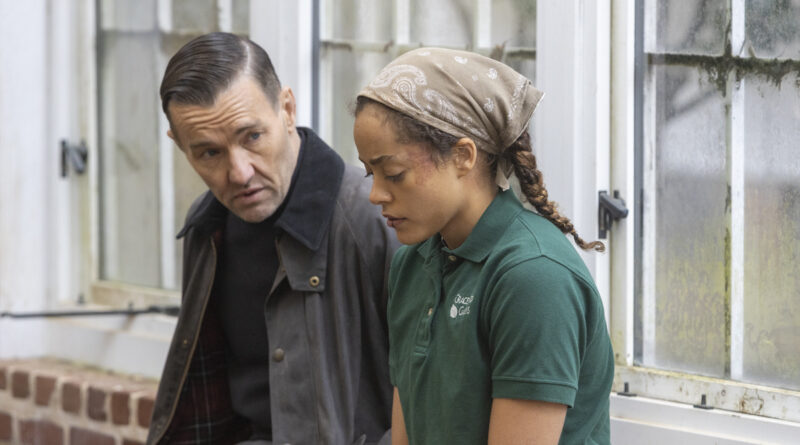‘Master Gardener’ Review: Schrader Strikes Again
Few filmmakers have managed to carve out a specific niche for themselves as well as Paul Schrader. An unusual kind of specialist, Schrader tends to focus entirely on stories about destructive loners, seeking belonging and redemption in a world that has no place for them. From Taxi Driver to Raging Bull to Mishima to First Reformed, what is perhaps most astonishing about Schrader is that he manages to not only make great movies, but continues to find new ways to adapt the same main character that still feel fresh and relevant after fifty years.
His latest, Master Gardener, features several Schrader hallmarks. The story focuses on Norville Roth (Joel Edgerton), another tortured loner with a checkered past who funnels his destructive energies into a specific hobby (in this case, gardening) while also giving the viewer access to his thoughts via his journal. Master Gardener continues Schrader’s latest streak of using this type of character to discuss more topical issues. Just as 2017’s First Reformed examined climate change and 2021’s The Card Counter examined the war on terror, Master Gardener turns its eye toward racism and prejudice, once again offering no easy answers, albeit with a much more hopeful outlook than the prior two. Norville is a former Neo-Nazi thug, who now lives under witness protection after becoming an FBI informant and hitman, killing most of his old skinhead gang. He tends Gracewood Gardens, a southern plantation-style estate, which is owned by Norma Haverhill (Sigourney Weaver). His quiet life is upended when he takes Norma’s half-black grand niece, Maya (Quintessa Swindell), under his wing. Norville and Maya develop a quiet friendship and eventual romance, which is continuously threatened by Norville’s past and his gnawing guilt about what he’s done.
Master Gardener is, above all else, a quiet movie. It exercises restraint in almost every way. The camera is frequently still and held at a distance. The characters of Gracewood Gardens are acted in Bresson-esque fashion, with most aspects of performance stripped away, leaving only minimal layers of interpretation between the content of their dialogue and action and how it appears on screen. Dialogue is delivered flatly with minimal affect added by the camera or the editing. The peeling away of the arts that we commonly associate with movies reveals the inherent artifice of cinema while also producing something that feels strangely all the more natural as a result, and one where all the movie’s metaphors and ironies are that much clearer. Gracewood Gardens feels like another world. A magical land of flowers ruled over by Norma, a selfish, bigoted, and out of touch relic from another era. As gorgeous as the estate is, there is a fundamental sense of decay embodied by the old houses and Norma’s presence, which further plays into the movie’s ideas of decay, death, growth, and renewal so perfectly embodied by the gardens. The irony of her black grand niece, who leads a troubled and precarious life outside, looking for a home and a better future on a southern plantation where her own mother was turned away, is not lost either.
As the troubles of Maya’s life intrude more and more on the manicured world of Gracewood, Norville takes it upon himself to set things right so she can have a clean break to start again, all the while angering Norma as her controlling hold on the estate and her own sense of self begin to wither. The movie presents us with difficult characters in difficult situations, who all in some way either try to break from the past or remain slaves to it. But as Norville says early on, “Gardening is a belief in the future,” and the movie leaves us on a somewhat ambiguous but ultimately hopeful note: that the future may indeed be brighter than today.
Master Gardener, while a bit cold and alienating at times, is another strong entry in Schrader’s filmography, deftly examining ideas of prejudice, guilt, redemption, control, and chaos while showcasing some extremely refined filmmaking technique from all parties involved. While not able to match the excellence of First Reformed or The Card Counter, it is still absolutely worth viewing. Catch it in theaters while you still can.




